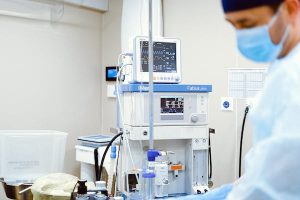What Is a Public Health Nurse? Exploring This Impactful Nursing Specialty
 Most people have no problem picturing what a nurse does all day. But ask them about the role of a public health nurse, and you’ll probably get a blank stare. Even with the COVID-19 pandemic placing public health nurses in a global spotlight, it’s understandable if you might not know what exactly these nurses are actually responsible for.
Most people have no problem picturing what a nurse does all day. But ask them about the role of a public health nurse, and you’ll probably get a blank stare. Even with the COVID-19 pandemic placing public health nurses in a global spotlight, it’s understandable if you might not know what exactly these nurses are actually responsible for.
That’s nothing to be ashamed of as not everyone needs to know the ins and outs of public health nursing. But if you have an interest in nursing, you might want to learn more about different types of nurses out there and your potential specialization options—public health nursing included.
So what is public health nursing? If the only answer you can come up with is a vague picture of someone in scrubs passing out flyers about healthy foods, then you’ve come to the right place!
We’re exploring all the answers you need to know about public health nursing, including what they do, where they work and what kind of education they need. After reading this article, you’ll have all the answers to the question “What is a public health nurse?”
What do public health nurses do?
Public health registered nurses (RNs) work at the intersection of public health and nursing. Rather than caring for individual patients, like most generalist RNs, public health nurses care for entire groups of people. They do this by focusing on entire populations, such as low-income patients, pregnant women, those in a certain geographical area or those with conditions like diabetes or high blood pressure. Often these populations are at a greater risk for health issues or complications and are in turn prioritized for assistance by public health departments.
Public health RNs approach nursing from a different perspective than RNs in other specialties. Rather than treating a single health issue when it arises, they look at many risk factors and try to prevent health problems before they begin.
“Public health nurses acknowledge the complexity of public health problems and the contextual nature of health—including cultural, environmental, historical, physical and social factors,” according to the American Public Health Association (APHA).1 These nurses take a bird’s-eye view so they can see systems that may be affecting the overall health of different groups of people. They are big-picture thinkers who aim to improve public health by educating patients and encouraging policy changes that make a safer, healthier world for everyone.
The job duties of a public health RN vary quite a bit depending on where they are employed and what their specialty is, but these are a few of the tasks they may encounter:
- Performing preventative health screenings
- Developing educational material and teaching patients about various health risks
- Communicating with communities in case of a natural disaster or infectious disease outbreak
- Evaluating the overall health and wellness needs of specific populations
- Informing population groups about relevant community resources
As you can see, the work of public health nursing professionals is largely in line with the adage, “An ounce of prevention is worth a pound of cure.” By educating, screening and prioritizing preventative measures, public health nurses can help improve health outcomes for entire communities.
Where do public health nurses work?
Most community health workers are employed by the federal, state or local government, according to the Bureau of Labor Statistics (BLS).2 This includes work environments as wide ranging as high-profile agencies like the Centers for Disease Control and Prevention to a small county’s local health department. Individual organizations, such as nonprofit foundations or private health agencies, also need public health RNs on their team.
Regardless of how large or small a public health RN’s workplace is, there will be a focus on doing their part to improve the health of specific populations—and those groups will differ depending on where a public health nurse works.
Some geographic regions have greater struggles with pollution, narcotic drug use or obesity. Certain agencies may have a focus on specific areas of healthcare or certain types of disease. These differences are all things to consider for an aspiring public health RN who wants to follow their interests.

